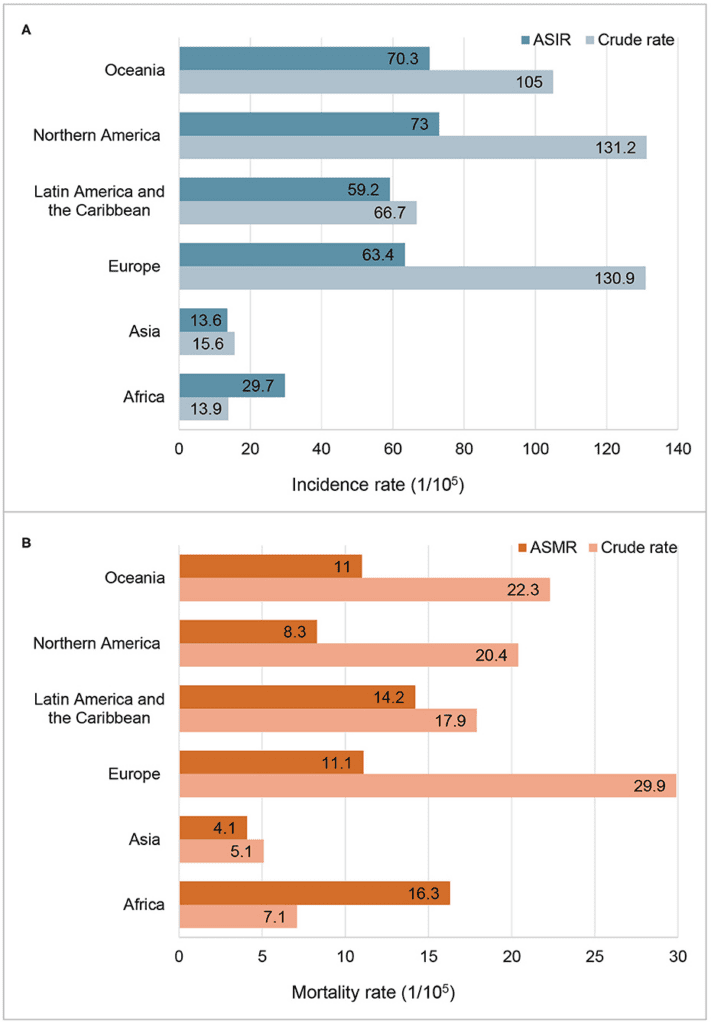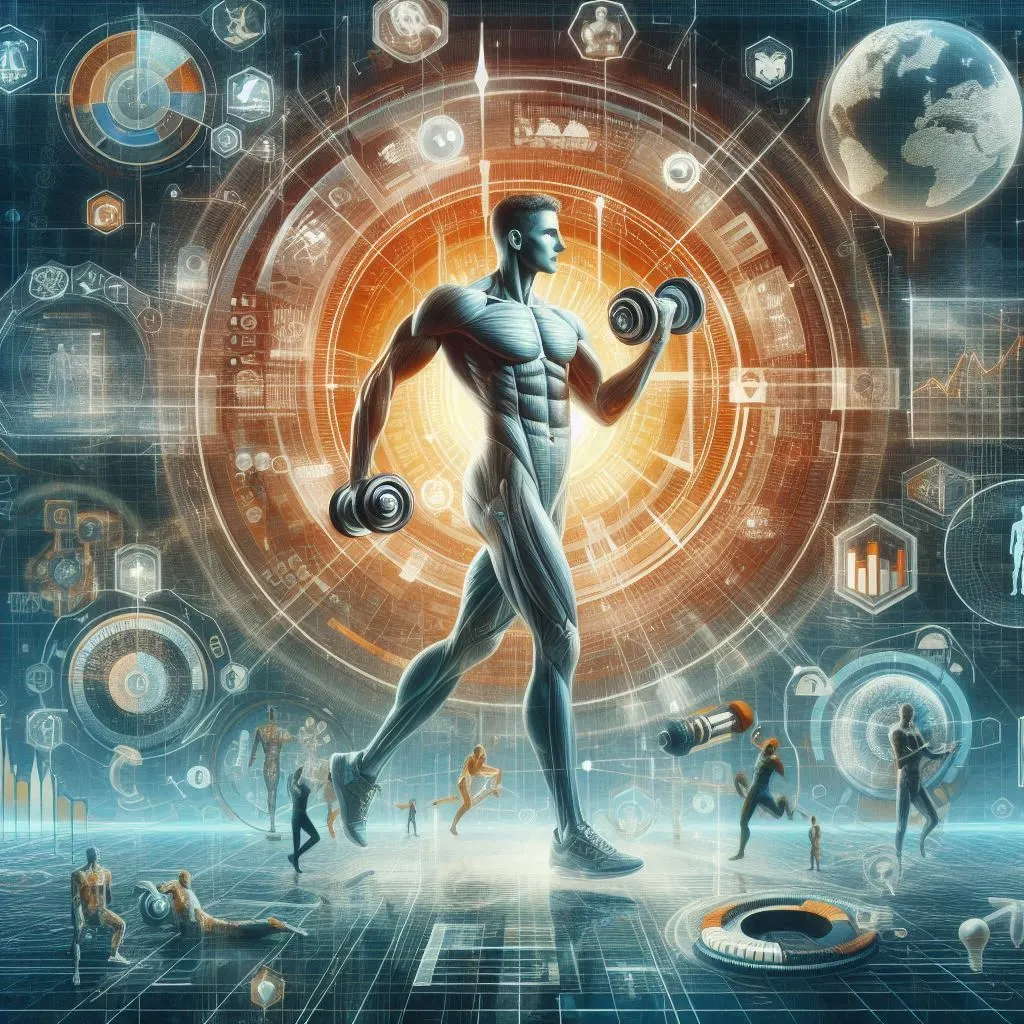For centuries, societal expectations have shaped a narrative around masculinity that often prioritizes stoicism and strength over vulnerability and self-care. This traditional view has had a profound impact on men’s health, creating a significant barrier to seeking medical help.
In our previous article, we’ve touched upon femtech. This industry focuses on female healthcare and products targeted at women. For centuries women’s problems were dismissed as unimportant. However, as we’ll see in this article, guys didn’t have an easier life either. It takes a lot for them to admit that they have a medical problem that should be fixed. It looks almost as if only generic issues got semi-decent attention. Everyone was afraid to go deeper into the research of specifics. Thankfully, that situation is changing.
What are the main things that prevent men from seeking healthcare or medical help?
- The “Strong Man” Ideal: Historically, men were expected to be unwavering providers and protectors, suppressing emotions and prioritizing physical toughness. This ingrained notion discourages open discussion about health concerns, which are often seen as a weakness.
- The “Man Up” Mentality: The phrase “man up” trivializes legitimate health concerns. It discourages men from seeking help. They may fear judgment or appearing “soft.” This can lead to delayed diagnoses and unnecessary complications.
The Consequences of Silence
As a result of all these “macho” traditions, men are less likely than women to seek preventive care. They are also less likely to seek screenings for various conditions. This can lead to delayed diagnoses and poorer health outcomes.
Some examples include:

While traditional notions of masculinity play a significant role, the tide is starting to turn. Enter the rise of innovative software startups specifically addressing this gap and empowering men to prioritize their health.
Where Attention is Needed: Men Health Startups

Men’s Mental Health and Tech Solutions
One key area is the development of apps specifically designed to address men’s mental health challenges. These apps go beyond generic therapy tools and offer targeted features like:
- Content tailored to men: Recognizing the unique pressures men face. These apps address topics like stress management, relationship issues, and body image from a male perspective.
- Interactive exercises: Techniques like mindfulness and cognitive behavioral therapy (CBT) are presented in a way that’s engaging. The presentation is easy to understand.
- Tracking symptoms: Tools for monitoring mood, sleep patterns, and triggers help men monitor their condition. They allow men to take a proactive approach to their mental health.
Example: Apps like “Headspace Men’s Health” and “DudeWell” provide personalized coaching, guided meditations, and educational content specifically for men.
Another powerful approach involves fostering open communication and peer support. Online communities and support groups offer a safe space for men to share their experiences, connect with others facing similar challenges, and break down the stigma surrounding mental health.
Example: Platforms like “The Mighty” and “ManTherapy” create online communities where men can openly discuss their struggles and receive encouragement from others who understand.
By prioritizing these needs, tech startups are empowering men to prioritize their mental well-being and seek help without fear of judgment. This combination of personalized apps and supportive online communities is fostering a healthier environment for men to address their mental health concerns.

Beyond the Blue Pills: Expanding Tech’s Role in Men’s Sexual Health
Men’s sexual health is another area where technology is breaking down barriers and creating solutions. Traditionally, seeking help for erectile dysfunction or premature ejaculation involved awkward doctor visits. Today, discreet and convenient platforms are changing the game:
- Online consultations and prescriptions: Platforms like “Roman” and “Lemonaid” offer men the option to connect with licensed physicians online. They can receive diagnoses and obtain prescriptions for medications like Viagra or Cialis. All of this is from the comfort and privacy of their homes.
- Personalized treatment plans: These platforms go beyond just medications. Some offer personalized treatment plans, lifestyle recommendations, and ongoing support to address the root causes of sexual health concerns.
- Stigma-free environment: The discreet nature of these platforms removes the fear of judgment often associated with seeking help.
Technology also plays a crucial role in sexual education and STI prevention.
- Educational apps and resources: Apps like “Planned Parenthood” and “Scarleteen” provide men with accurate and accessible information on a wide range of sexual health topics, including STIs, contraception, and healthy sexual practices.
- STI testing kits with online consultations: Platforms like “EverlyWell” allow men to order at-home STI testing kits with the option of follow-up online consultations with healthcare professionals. This eliminates the need for in-person clinic visits and empowers men to take control of their sexual health.

Beyond the Gym: Tech & Chronic Conditions in Men
As we mentioned above, chronic conditions like diabetes and heart disease disproportionately affect men. Fortunately, technology is emerging as a powerful tool for managing these conditions and promoting better health outcomes. By providing personalized tools, remote access to specialists, and gamified motivation, technology is transforming chronic disease management for men.
One strategy focuses on empowering men to take an active role in their health. Tools like:
- Disease-specific apps: Apps like “Dario” for diabetes management or “Livongo” for chronic conditions offer personalized plans, medication reminders, and educational resources to help men understand and manage their specific conditions.
- Wearable technology: Devices like smartwatches and fitness trackers allow men to monitor key health metrics. These include blood sugar levels, heart rate, and activity levels. This data provides valuable insights into their overall health and empowers them to make informed choices about their lifestyle. (Read more on wearable technologies in healthtech in our other article.)
- Telehealth consultations with specialists: Platforms like ‘Teladoc’ or ‘Doctor on Demand’ connect men with healthcare professionals remotely. They provide convenient access to expert advice and treatment plans. This service eliminates the need for lengthy in-person visits.
These tools go beyond simple data collection. They promote healthy behaviors by:
- Setting personalized goals: Helping men set achievable goals for weight loss, exercise frequency, or medication adherence.
- Providing real-time feedback: Offering immediate feedback on progress, allowing men to adjust their routines for optimal results.
- Promoting healthy competition: Some platforms incorporate gamification elements to boost motivation and create a sense of community.

General Tech Toolbox for Men’s Wellness: From Sleep to Stress
Men’s overall well-being goes beyond just physical health. Technology is emerging as a powerful ally for promoting a holistic approach to men’s wellness. Here’s how:
- Sleep Optimization: Poor sleep plagues many men. Apps like “Sleep Cycle” and “Calm” offer sleep-tracking capabilities. They also provide personalized sleep programs. Finally, they include calming bedtime routines to improve sleep quality and promote better overall health.
- Fitness Made Easy: Staying active is crucial for men’s health. Fitness apps like “Fitbod” and “Nike Training Club” offer personalized workout routines. They track progress and provide a virtual coach to keep men motivated and on track with their fitness goals.
- Holistic Wellness Platforms: Apps like “Headspace” and “Talkspace” take a more comprehensive approach. They offer features like guided meditation, mindfulness exercises, and nutrition coaching. These features help men manage stress. They also improve mental well-being and cultivate healthy lifestyle habits.
These platforms don’t just provide tools; they create a supportive environment. Many offer social features. These features allow men to connect with others who share similar goals. This fosters a sense of community and accountability.
Benefits of Men’s Health Startups
Specialized men’s health startups help to break down barriers by overcoming the stigma and encouraging men to prioritize health needs. As a result, in an ideal world, this should lead to general attention to various truly personalized medical solutions instead of “one-band-aid-fits-all” type of things. Also, besides improving men’s health, this would positively affect family lives, future generations, life quality, and a multitude of other things. When people feel well physically, this improves their overall mood.
Challenges and Considerations
While technology offers immense promise for improving men’s health, there are challenges to consider:
- Reaching Men Hesitant About Technology: Not all men are comfortable with technology. A 2023 Pew Research Center survey found that 29% of men aged 50 and above report going online less than once a day, compared to 18% of women in the same age group. Strategies are needed to reach this demographic, potentially through partnerships with traditional healthcare providers or leveraging trusted community leaders to promote tech-enabled health solutions.
- Data Privacy and Security: Men, like everyone else, have concerns about data privacy. A 2022 study by Accenture found that 83% of global consumers are worried about how companies use their health data. Building trust is essential. Tech solutions need to emphasize robust security measures, clear data privacy policies, and user control over their health information.
- Integration with Traditional Healthcare Systems: Fragmentation between digital and traditional healthcare can hinder progress. Ideally, these solutions should integrate seamlessly with existing healthcare systems. This allows healthcare professionals to access relevant data and give more holistic care plans for their patients. Initiatives like open APIs can allow this integration, ensuring that tech platforms complement, rather than replace, traditional healthcare services.pen_spark
The Future of Men’s Health Software
Technology’s impact on men’s health extends beyond the solutions already mentioned. Here’s a glimpse into what the future holds:
AI-powered Chatbots for Personalized Support: Imagine a discreet and readily available health companion. AI-powered chatbots can give personalized support and guidance on a variety of topics, from managing chronic conditions to navigating mental health challenges. For example, an AI chatbot can:
- Offer symptom checkers and suggest relevant resources based on user entry.
- Deliver educational content tailored to specific health concerns.
- Give daily reminders for medication adherence or encourage healthy habits.
- Connect users with mental health professionals or support groups.
Integration with Wearable Devices for Real-Time Insights: Wearable devices like smartwatches and fitness trackers are increasingly popular. Integrating these devices with men’s health platforms unlocks a wealth of real-time health data. This data can be:
- Analyzed by AI algorithms: These algorithms can detect potential health risks or track progress toward personal health goals.
- Used to create personalized health reports: These reports can give men valuable insights into their sleep patterns, activity levels, and overall health status.
- Shared securely with healthcare providers: This allows doctors to oversee patients remotely, personalize treatment plans, and intervene proactively if necessary.
Collaboration with Healthcare Providers for Seamless Care: Technology can bridge the gap between digital and traditional healthcare. Imagine a platform where men can:
- Schedule appointments with healthcare providers online.
- Access their medical records electronically.
- Share health data collected through wearables with their doctors.
- Get personalized treatment plans informed by both real-time data and a doctor’s skill.
These are just a few examples of how technology is poised to revolutionize men’s health.
Men’s Healthcare: What’s Next?
Overall, there are many possibilities and all of them hold treasure inside: a healthy world – not only physically, but mentally as well. The potential is truly exciting and to reach it, it is critically important to redefine masculinity to include self-care. After all, prioritizing one’s health doesn’t need to compromise the sense of self.
Men’s health is a critical but often overlooked issue. By acknowledging the historical stigma and taking steps to dismantle it, we can create a future where all men feel empowered to focus on their well-being and live healthier lives.
Wondering about time-to-value?
Request a no-obligation discovery call and receive a preliminary estimate tailored to your KPIs.


